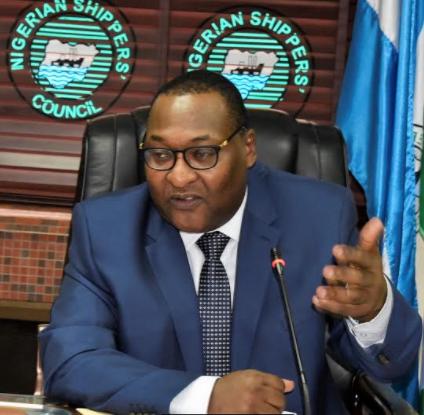The Nigerian Shippers’ Council (NSC) has commended PTML Terminal for using automation to drive its operations and providing top-notch service to port users.
PTML is the largest roll-on-roll-off terminal in Nigeria. It handles a big chunk of vehicles imported into the country.
NSC Executive Secretary/CEO, Hassan Bello, made the commendation when he led the management team of the Council on a working visit to PTML and Port & Cargo terminals in Lagos on Wednesday.
“I am really proud of this terminal having had the highest percentage in digitisation. You have always improved on efficiency and the shippers using your facility have confirmed that.
“Many terminals are also emulating you in your digitisation effort. I am seeing your terminal becoming contactless with less people coming here. We are going to use your terminal to showcase what a terminal should be,” Bello said.
Bello also noted that NSC is not opposed to an upward review of tariff by terminal operators, stating that the Council only advocates that the review follows due process.
“We are never averse to review of tariffs. Things cannot be the same constantly. There are issues of operational costs, which have gone up, inflation, fluctuation in foreign exchange and for terminals they have not reviewed it for almost nine years and much has happened. But all we ask from the terminals and shipping companies is to follow the guidelines for review of these tariffs and we will not withhold it unreasonably,” he said.
Responding, the Managing Director of PTML, Ascanio Russo, said the terminal has been investing heavily on digitization for over ten years, noting that the only way to get the best of the industry is to invest in technology and multimodal means of transportation.
He said, “I am excited that the NSC mentioned multimodalism. This is something we strongly believe in and we have been doing multimodalism for almost ten years through our barges and offdock terminal in Mile 2. So I am happy that Shippers Council is pushing this on the table.
“We have been investing in a lot in technology for over ten years and expanding, so we really support the drive from the Council. We have also been helping the industry by loading empties which are not discharge by our shipping line.
“We are already working 24 hours operation. We receive vessels all the time and we are ready to deliver cargo during the night but the challenge is security. We need to address the issue of security and the issue of road congestion.”
Also speaking, the Managing Director of Ports & Cargo Handling Services Limited, John Jenkins, expressed concern over the poor condition of roads leading to the port. He said the cost of doing business at the port will reduce if port roads are in good condition.
Jenkins also noted that the challenge on the port access roads has resulted in congestion inside the port terminal as efforts to speedily evacuate cargoes are being hampered.
He pointed out the need to increase terminal handling charges as he noted that cost of operations, salaries and other fees associated with port business have increased.
“We need to increase tariff because we haven’t done so in over nine years while the cost of operations have increased. Our workers are expecting an increase in salaries. The cost of fuel and other necessary costs have also increased,” he said.
